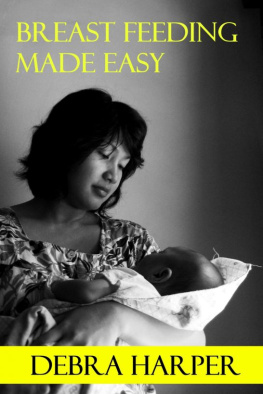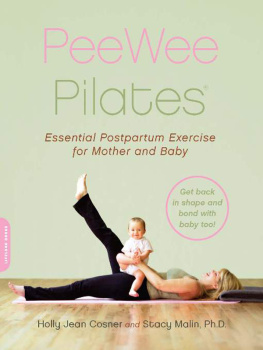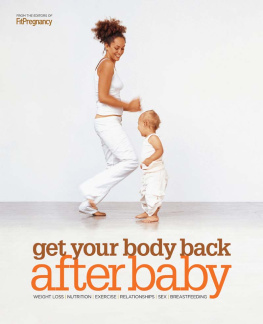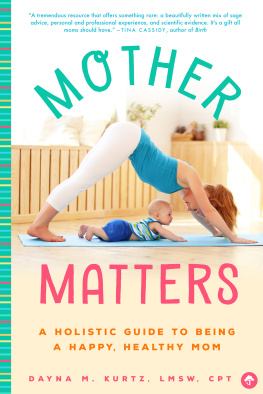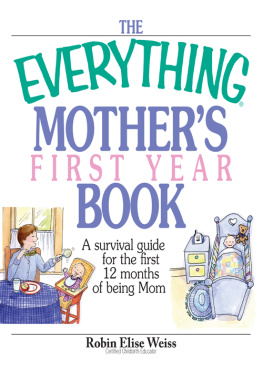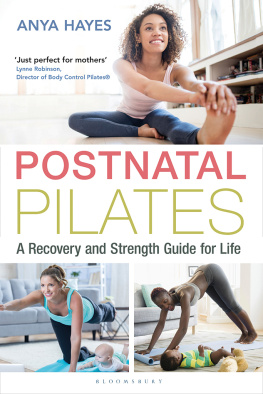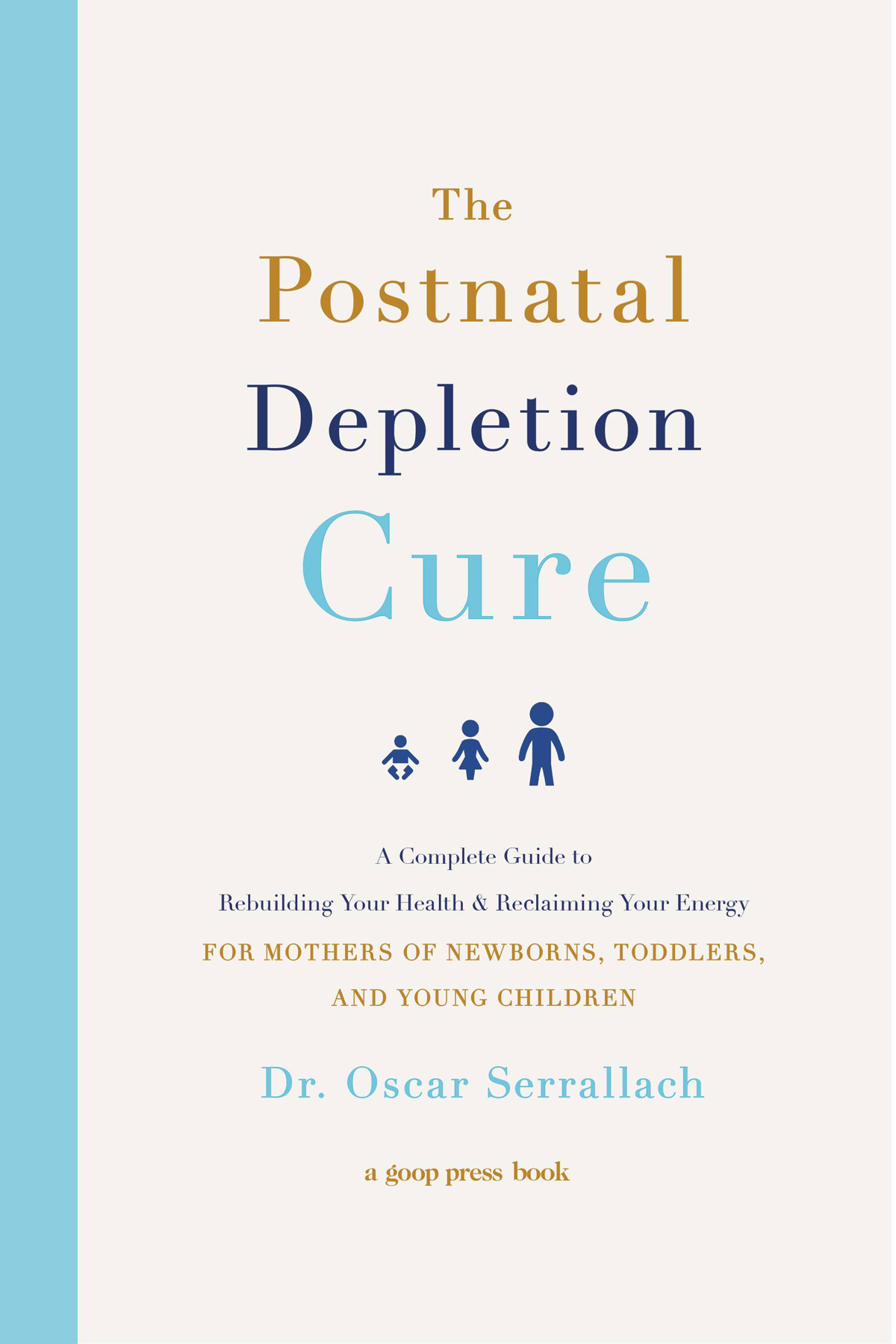Thank you for buying this ebook, published by HachetteDigital.
To receive special offers, bonus content, and news about ourlatest ebooks and apps, sign up for our newsletters.
Sign Up
Or visit us at hachettebookgroup.com/newsletters
The advice herein is not intended to replace the services of trained health professionals or be a substitute for medical advice. You are advised to consult with your health-care professional with regard to matters relating to your health, and in particular regarding matters that may require diagnosis or medical attention.
Copyright 2018 by Oscar Serrallach, MD
Cover design by Claire Brown
Cover copyright 2018 by Hachette Book Group, Inc.
Hachette Book Group supports the right to free expression and the value of copyright. The purpose of copyright is to encourage writers and artists to produce the creative works that enrich our culture.
The scanning, uploading, and distribution of this book without permission is a theft of the authors intellectual property. If you would like permission to use material from the book (other than for review purposes), please contact permissions@hbgusa.com. Thank you for your support of the authors rights.
Balance
Hachette Book Group
1290 Avenue of the Americas, New York, NY 10104
www.GrandCentralPublishing.com
www.goop.com
First ebook edition: June 2018
Balance is an imprint of Grand Central Publishing. The Balance name and logo are trademarks of Hachette Book Group, Inc.
The Hachette Speakers Bureau provides a wide range of authors for speaking events. To find out more, go to www.hachettespeakersbureau.com or call (866) 376-6591.
The publisher is not responsible for websites (or their content) that are not owned by the publisher.
ISBN 978-1-478-97029-3
E3-20210728-JV-PC-COR
- PART I
DEFINING POSTNATAL DEPLETION - PART II
ONE HUNDRED DAYS OF REPLETION:
REBUILDING PHYSICAL WELLNESS - PART III
THE SECOND AND THIRD TRIMESTERS:
COMPLETING PHYSICAL RECOVERY - PART IV
RECOVERING YOUR LIFE
Navigation
This book is dedicated to all mothers who have suffered and struggled in their selfless roles as caregivers, often without the unconditional support and wisdom from their culture, societies, and families that should have been their birthright. It is your strength that has inspired and guided me in writing this book.
The well-being of mothers is the fabric from which the cloth of the future of our society is made.
Dr. Oscar Serrallach
I have written this book to answer a question many women ask: How do I get my life and myself back after becoming a mother? How do you find the strength to deal with your needs when our society tells us to focus entirely on the needs of the baby, causing you to disappear into the shadows of your predestined role? This infant-centered focus is something I witnessed in my practice as a doctor and as a father watching my extraordinary partner, Caroline, struggle after the birth of our children. It has been consistently mentioned by almost every mom Ive spoken to, in contexts that vary from energy to illness to time management to self-confidence.
This is a huge hole in our thinking and treatment of new mothers. Worse, its a hole that gets bigger and bigger because its not discussed from a medical point of view. Postpartum depression, yes. Postnatal depletion? Say what? Theres not even healthy dialogue around this concept, let alone healthy societal awareness and information.
Whats just as, if not more, important to note is that postnatal depletion doesnt just affect new mothersit affects all mothers. If a new mom isnt allowed to fully recover from the demanding requirements of pregnancy and birth, the aftereffects can last for years. Ive treated women who were still depleted ten years after their babies were born. And if you then take into account the stress and sleeplessness associated with raising tweens and teenagers, coupled with the hormonal effects of perimenopause and menopause, it can become a pretty grim journey if mothers arent truly supported and allowed to recover.
I know that this condition is real, and I know there is no need for you to suffer. There is almost a subconscious badge of honor associated with a moms ability to juggle motherhood and child care with returning to work as soon as possible. Our Western culture has done mothers a great disservice by not honoring them on their road to recovery and giving them the time they need to adjust to the monumental changes in their lives. This needs to change! It is my hope that I can play a role in helping change the narrative of how we think about postpartum care, and it is urgent that we do. It was out of necessity that I went on a quest to help my darling partner, Caroline, back to health. But she helped me discover the reasons why mothers get so depleted, and what can be done to help them back to full functioning.
MY STORY
Nimbin is a small, quaint town about an hours drive inland from Byron Bay, which is Australias most eastern point in the state of New South Wales. I moved there in 2003, feeling unfulfilled as a doctor and needing a change to jolt me out of my career rut. Id been a medical mercenary up until then, chasing jobs from city to city, working on everything from drug addiction to indigenous health to psychiatry to being part of the Emergency Department team in the coastal town of Ballina.
Unlike most other areas of medicine, emergency medicine is uncompromisingly simple: patients have specific needs that we can treat on the spot. I really enjoyed the camaraderie, and my schedule left me time to learn how to surf, practice my guitar, and be a player-coach for my local soccer club. But a deep restlessness and frustration led me to Nimbin, a town renowned for being a center of counterculture in my country; even though I didnt buy into the towns somewhat notorious hippie ethos of free love and drugs, I dove into the deep ecological consciousness that was also an integral part of living in this area. I met many inspiring people with thought-provoking ideas. This is where my evolution as a doctor began.
At a music festival in 2003, I met Caroline Cowley, who soon became my life partner. Although she was a high-flying professional, born and bred in the metropolitan city of Melbourne, I was able to convince her to come live in the sleepy countryside surrounding Nimbin. We fell deeply in love and got very caught up in the romantic idealism of self-sufficiency. We created a thriving garden and spent many hours working on the land. It became quickly apparent to us that in this idyllic scenario we wanted to start a family, which led us to become involved in the thriving local home-birth community.
Having been trained in orthodox medicine, it was not an easy thing for me to embrace the idea of our first child being born outside a hospital setting. It took many meetings with home-birthing moms, experienced midwives, and doctors whod had home births with their own children to finally warm me up to the idea. I tapped into an incredible amount of support and information about prenatal and postpartum care, from books, workshops, and mothers we met. One of the most wonderful experiences was when Caroline had a blessingway ceremonya tradition in the Native American culture in which the mothers sit in a circle and share stories in support of the mother-to-be. As the father-to-be, I was taken on a ceremonial walk by an aboriginal friend of mine to a sacred area to celebrate my up-and-coming role. It was a beautiful experience and made me feel part of the long, ancient history of generations birthing generations. Still, I couldnt help myself: I wrote a very detailed birth plan in case we did need to make the transfer to hospital!


